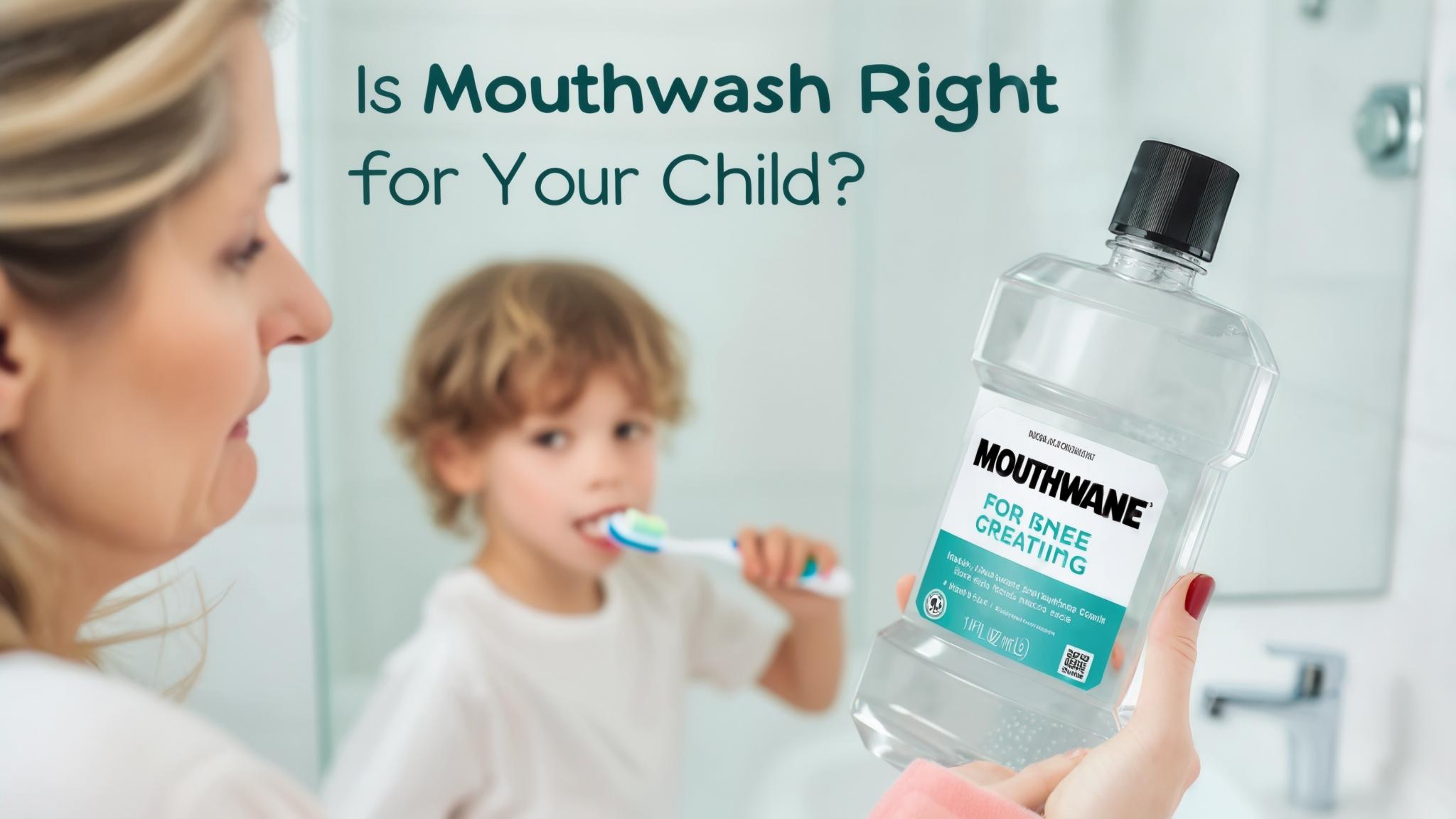Overview of Children's Dental Health
Ensuring your child's teeth and gums are healthy is a crucial part of their overall well-being. Just like learning to tie their shoes or ride a bike, teaching them good oral hygiene habits early on sets the foundation for a lifetime of healthy smiles. Oral hygiene for children involves regular brushing, flossing, and, for some, the use of mouthwash. But, is mouthwash necessary for your child? This article explores the benefits and safety of mouthwash for children, helping you make informed decisions for your child’s dental care.
Understanding Mouthwash
Mouthwash is a liquid product used to rinse the mouth, teeth, and gums. It can be a helpful addition to brushing and flossing, providing extra protection against oral health issues. There are two main types of mouthwash:
- Cosmetic Mouthwash: Primarily used to freshen breath, these mouthwashes do not address underlying oral health issues.
- Therapeutic Mouthwash: Contains active ingredients that help reduce plaque, gingivitis, cavities, and bad breath.
Common ingredients in mouthwash include fluoride, which helps prevent cavities, and antimicrobial agents that reduce bacteria. It's important to note the difference between alcohol-containing and alcohol-free mouthwashes, especially for children, as alcohol can be harsh and potentially harmful if swallowed.
Benefits of Mouthwash for Children
Mouthwash can enhance oral hygiene by reducing plaque and gingivitis, much like how a shield protects a knight in battle. It also helps freshen breath, which can be particularly beneficial for children as they become more socially aware. Fluoride mouthwash plays a significant role in cavity prevention, acting as an additional layer of protection for growing teeth.
For children with braces or other dental appliances, mouthwash can help clean areas that are difficult to reach with a toothbrush. Moreover, incorporating mouthwash into their routine encourages a lifelong habit of comprehensive oral care.
Safety Considerations
When it comes to mouthwash, age matters. Most dental professionals recommend introducing mouthwash to children aged six and above, as younger children may struggle with the concept of spitting out the liquid rather than swallowing it. Swallowing mouthwash can pose risks, especially if it contains alcohol.
Supervision is crucial when children use mouthwash. Parents should watch for any signs of adverse reactions, such as burning sensations or allergic responses, and consult a dentist if these occur.
Guidelines for Using Mouthwash
Introducing mouthwash should be carefully timed. Begin when your child is mature enough to handle the responsibility, usually around age six. Use a small, age-appropriate amount, and instruct them to swish it around their mouth for about 30 seconds before spitting it out.
Choose a mouthwash that is specifically formulated for children, often available in kid-friendly flavors. This makes the experience more enjoyable and encourages regular use.
Alternatives to Mouthwash
If mouthwash isn’t suitable for your child, there are other effective oral hygiene practices to consider. Brushing twice a day with fluoride toothpaste and flossing are fundamental. Additionally, maintaining a healthy diet low in sugary snacks and drinks can significantly impact oral health.
Some parents prefer natural mouthwash options, such as saltwater rinses, which can be a gentle alternative to commercial products.
Conclusion
Mouthwash can be a beneficial addition to a child's oral hygiene routine, but it's important to weigh the benefits against potential safety concerns. Always consult with your child's dentist to determine the best approach for their dental care. Remember, instilling good oral hygiene habits early can lead to a lifetime of healthy smiles.
References
For more information, consult credible sources such as the American Dental Association and pediatric dental studies that explore the use of mouthwash in children.

